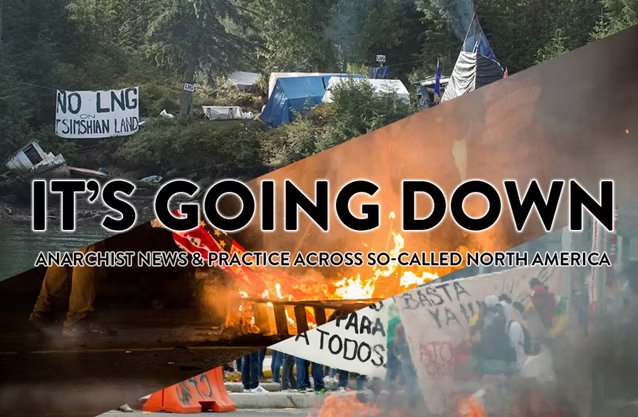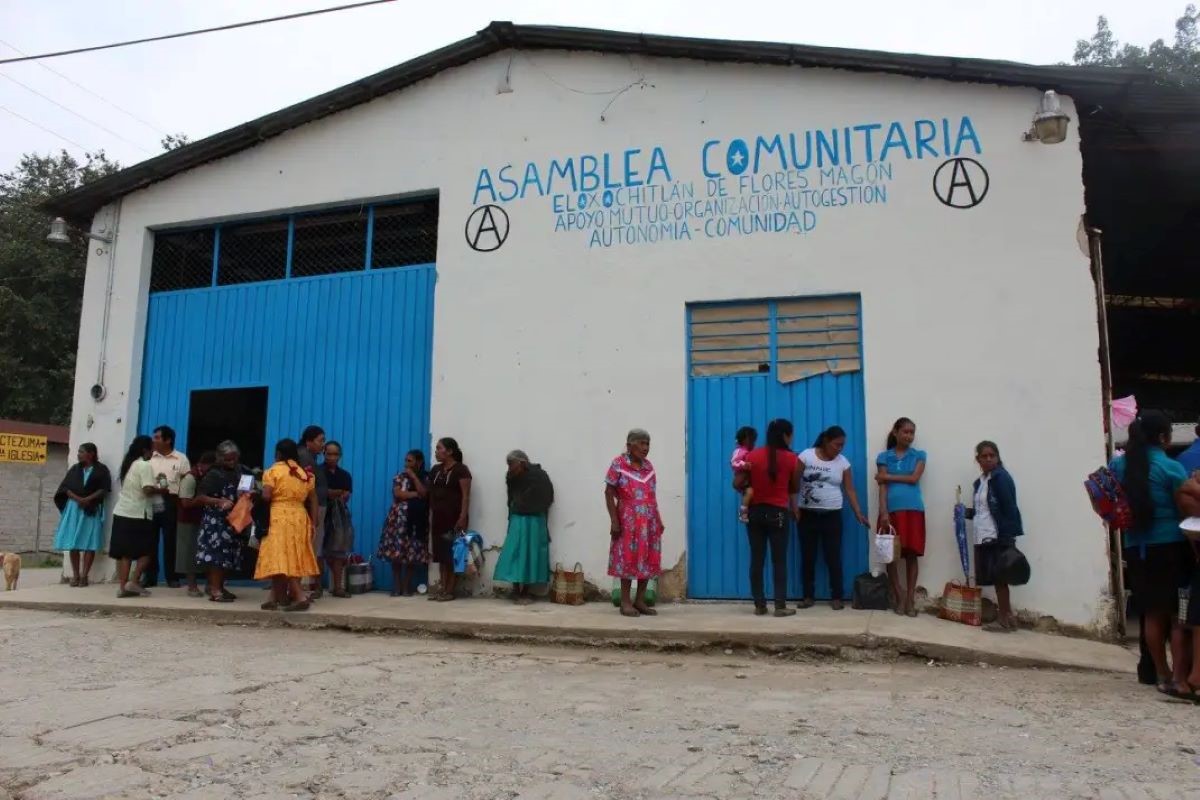Filed under: Austerity, Canada, Capitalism, Civilization, Critique, Editorials, Environment, Labor, Mexico, Roundup, US

#TPP Agreement Reached, Activists Call For Mass Protest in DC Nov. 14th-18th | http://t.co/7bQyEQIDsV #TPPANoWay pic.twitter.com/GI9YI7fWPT
— Revolution News (@NewsRevo) October 6, 2015
This week we’re going to hold off on doing a full round-up and instead focus on one issue that has been flying under the radar for most anarchists and radicals: the passing of the Trans Pacific Partnership Trade Agreement, also known as the TPP.
On Monday, October 5th, Obama rushed through the passing of the TPP (Trans Pacific Partnership) trade agreement, which would push for an expansive ‘free-trade’ deal across Pacific Rim countries. The TPP agreement will help facilitate the merging of the economies of Japan and the US together in order to compete with China. Many content this push will set in motion a path toward war between competing state capitalist powers.
Negotiations have been underway since 2010 although have taken place largely in secret. The deal has been blasted by mainstream labor-unions and environmental groups who state that it will continue to degrade working conditions and the overall environment, much as NAFTA and other such agreements have done for decades. Despite a continued championing of the myth of the growth of the middle class out of the recession and the façade that the state will take on big oil to curb climate change, the TPP will continue to erode wages and working conditions while advancing fracking and the oil based economy. According to one report:
Falsely described in the corporate media as “the largest free trade agreement in history,” the TPP is a wide-ranging 30-chapter blueprint intended to be the economic instrument of the US military and strategic “pivot” to Asia to encircle and confront China, which has been effectively excluded from the treaty.
Far from marking a new era of “free trade,” the TPP is a pact primarily between the world’s biggest economy—the US—and the third biggest—Japan—directed against China, currently the second largest economy. Having seen its post-World War II dominance slip for decades, the US ruling class, led by Wall Street and Silicon Valley, is determined to reassert its hegemony.
As a bloc, the TPP, whose 10 smaller parties are Australia, New Zealand, Brunei, Canada, Chile, Malaysia, Mexico, Peru, Singapore and Vietnam, nominally represents just under 40 percent of the world gross domestic product (GDP).
Obama, who was intensively involved in the arm-twisting to get all 11 countries to sign up, welcomed the deal with an aggressive statement from the White House. He insisted that not just across the Pacific but globally, the United States must dictate the economic terms, not China.
The TPP is not an agreement for free trade but the latest and most important of such deals. Its aim is not the expansion of economic intercourse but the establishment of a trade and investment bloc, dominated by the United States, from which it will strive to restore its previous economic hegemony over both its old rivals and emerging new ones.
The US administration makes no bones about its objectives. In a statement issued on Monday, Obama said: “When more than 95 percent of our potential customers live outside our borders, we can’t let countries like China write the rules of the global economy. We should write those rules.”
The chief US negotiator for the TPP, US Trade Representative Michael Froman has made clear that economic hegemony is as vital for assuring US global dominance as is military might. In a Foreign Affairs article published last year, he wrote, “trade policy is national security policy” and “markets can have as much influence as militaries.” The goal of the TPP was to place the United States at the centre of a web of agreements providing unfettered access to two-thirds of the world economy.
In promoting the TPP, Obama referred to the need to change the current economic architecture in response to globalisation, technological change and the rise of new economic centres. His comment pointed to some of the essential problems for the US under GATT and the WTO.
The TPP, incorporating and building on the regional and bilateral investment treaties that have been layered onto the World Trade Organization (WTO), challenges, limits, and does away with governments’ regulatory function through a variety of mechanisms, beginning with an expansive definition of investment and so-called investor rights.
Investment, we know from the leaked investment chapter published by Wikileaks, is defined as “any asset that is owned or controlled by an investor, directly or indirectly, whose characteristics include a commitment of capital or other resources, expectation of gain or profit, or assumption or risk.”
The TPP, TTIP, and similar agreements are “WTO-plus” — they go much further in establishing corporate prerogatives at the expense of the public interest.
All of the major candidates, from Hillary Clinton, to Sanders, to Donald Trump have all slammed the TPP, although Clinton backed it in the Senate. Salon reports:
Let’s be clear here: Hillary Clinton is lying when she says she’s opposed to the Trans-Pacific Partnership. There is absolutely nothing in either her political background or her political history to suggest that she has any real substantive problems with the deal. After all, she comes from the generation of Democratic politicians—the most prominent member of which was a certain other Clinton—who made their embrace of free trade deals like NAFTA one of the centerpieces of their efforts to yank the Democratic Party rightward. As First Lady, Hillary Clinton enthusiastically backed NAFTA. As Secretary of State, she pushed for trade deals with Colombia and South Korea and called the TPP the “gold standard” for such accords. (That would be the very same TPP that she’s now hedging on.)
The only times when Clinton has expressed any kind of ambivalence on free trade have come around the periods when she is running for office and needs to get votes from all those Democrats who have gotten the raw end of previous deals. This exhaustive roundup on NPR provides a damning portrait of Clinton’s slipperiness on the issue. When she was running for Senate, she suddenly decided that NAFTA was pretty flawed. When she was gearing up to run for president the first time, she voted against the Central America Free Trade Agreement, which had garnered significant opposition within the Democratic base. She also opposed those deals with Colombia and South Korea that she would magically come around on as soon as she joined the Obama administration. And now, with an unexpectedly robust challenge from Sanders on her left, she’s opposing the TPP.
Trump also obviously supports globalization as long as it benefits US capital, (again, the Nationalist position), and supports a 20% tax on all imports, knowing that what is needed for more expansive markets overseas for US goods is more and more military might. But such “opposition” will work out in all the candidates favor, as they look to the public as if they are, “fighting for the average worker,” when in reality when they enter into office they will do nothing to change the economic or ecological landscape, only continue to mange it and push us all towards oblivion. We should expect no different from any candidate, even Sanders.
Mobilizations are being called for in November in Washington, DC. How disruptive and militant these demonstrations are remains up to the people who get organized beforehand and show up. It also remains to be seen how well people are able to set their own goals and not be corralled by the politicians in waiting on the Left. It was the ability of people to use a variety of tactics from lockdowns, barricades, vandalism, and the push to disobey the union heads by rank-n-file workers that made the WTO Seattle protests so effective.
The fight around the TPP, if there is one, will be important among workers and the poor across Canada, the US, and Mexico. Obama is promoting it as a job creator and something that will increase capital investment into the US economy. While to many this is laughable, to most workers this talk will be welcoming. We have to be out in the streets contesting this narrative.
However, anarchists and other revolutionaries need to be on guard against both the neoliberal Democrats and the neoconservative Republicans, as well as both the green capitalist and neo-fascist wings of both of those camps on the extremes.
Discussion around the TPP does open up several things for us. It points to that over the last 8 years, the Democratic Party has continued to advance both a military and economic policy that has expanded US intervention, pushed the world closer to all out war, and increased economic neoliberal globalization. This means a continued race to the bottom for all workers and the poor, with people of color in the US, and indigenous and third world people across the globe being hit the hardest. As the recent refugee crisis in Europe shows, the state’s only solution to armed conflicts fueled by Western money and climate chaos is increased repression and border militarization. Meanwhile, despite “tough talk” on global warming, the elites are still banking on an oil based economy and the expansion of fracking and pipelines. There is no “progress” in conventional politics, only a hope to manage a sinking ship called civilization.
Meanwhile, the Conservative Right, which includes those from the Christian Right to White Nationalists and the growing militia movement, appear more and more as a “Populist force” within American society. Advocating for and end to free trade and the promotion of a Christian theocracy and authoritarian policies directed towards the most vulnerable in society: largely the poor, people of color, immigrants, and those deemed “social parasites” or “deviants.”
Anarchists are in a position to come out as a material force for liberation and autonomy all the while promoting a combative ethic of self-defense. But we need to actually build this force ourselves. As mentioned above, mobilizations have been called for in Washington, DC and it’s up to us to get organized and act strategically for there to be a chance this doesn’t result is the usual activist theatrics.
See you in the streets!
Tags: Globalization, Neo-Liberalism, TPP




